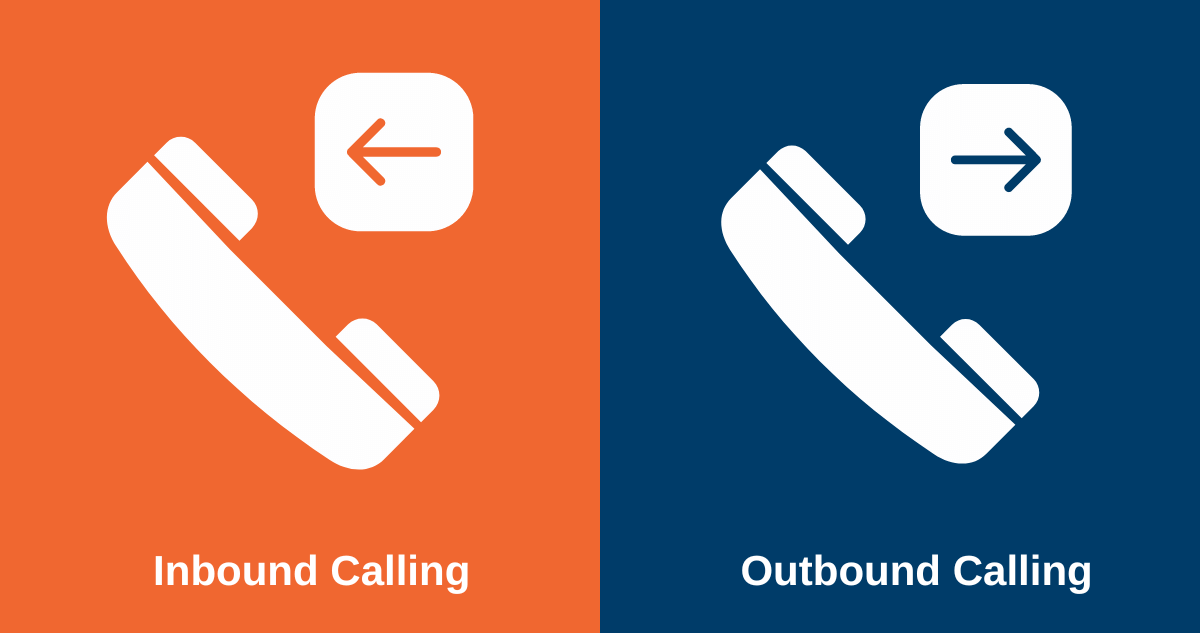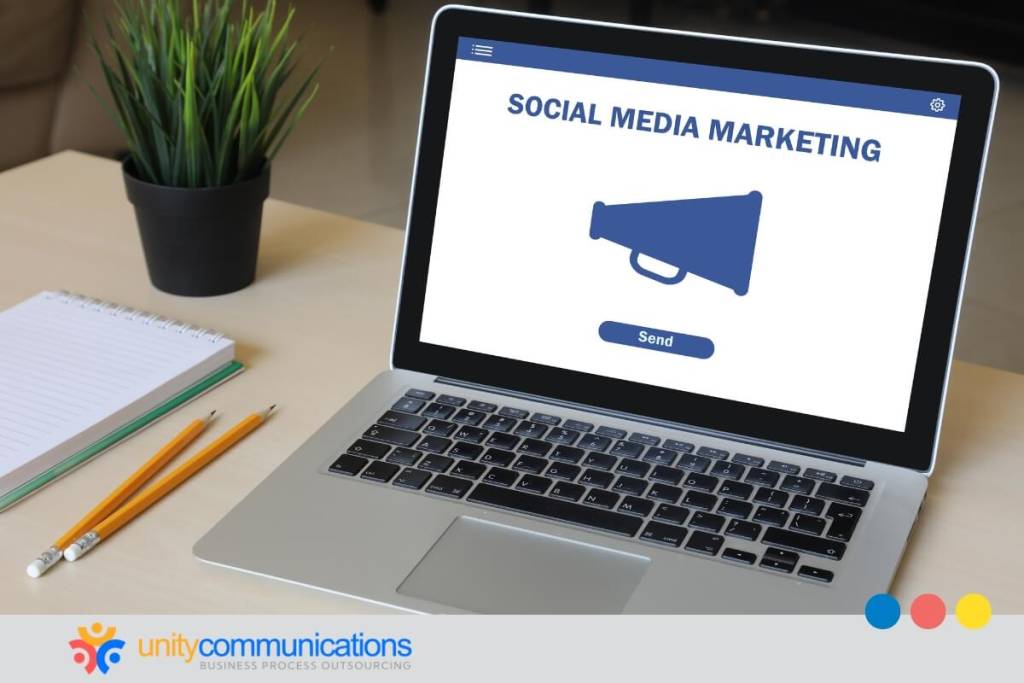Table of Contents
Not sure how to differentiate outbound and inbound call centers? A lot of companies are still unsure about which type of e-commerce call center to use.
Understanding the difference between outbound and inbound call centers for e-commerce helps you identify the right choice for your business. It makes sense for e-commerce companies to invest in their call centers since most consumers still prefer making calls to resolve any issues they have.
In this article, we’ll share what an inbound call center for e-commerce is and how getting started with outsourcing customer service can help your business. Also, we’ll give you some tips and advice for outsourcing customer service.
What Exactly Is an Inbound Call Center for E-commerce?

An inbound call center for e-commerce is a service that manages incoming calls from clients or businesses looking for technical or customer support for the product that a company provides. Inbound call centers (contact centers) and answering services respond to connect with clients and offer support focused on improving customer satisfaction and call resolution.
Whether you’re a small or large business owner, you can benefit by outsourcing your customer service to an inbound call center for e-commerce.
Inbound contact centers like Unity Communications guarantee a smooth customer experience across all channels, from voice calls and instant messaging to email and social media. Our robust phone systems and advanced routing capabilities connect customers to the appropriate agent to solve the problem on the first call, protecting customer relationships at all costs.
For instances where customers call an inbound contact representative for support but might be interested in another product or an additional product, they can talk to sales support agents instead. Our sales support agents can efficiently cross-sell or up-sell and complete the sale.
What’s the Difference Between Outbound and Inbound Call Centers for E-commerce?

An inbound call center for e-commerce handles calls when clients or potential clients initiate an interaction with a business. Customer service representatives deliver support and offer additional help to address underlying concerns, which may cause customers to call back again in the future.
Here’s a non-exhaustive list of services offered by an inbound call center for e-commerce:
- Product or tech support: Reps answer questions regarding a product or service and offer tech support where needed.
- Help desk services: Customers can submit complaints, report problems and faults, or purchase products.
- Payment and order processing: Agents are responsible for processing and taking payments for inbound sale orders through the phone. They also help customers resolve issues regarding billing, payment, or product purchases.
- Upgrades and renewals: The customer service agent answers customer calls involving renewals or upgrades of contract or subscription-based products.
On the other hand, outbound call centers make more calls with clients and potential clients than receive. The outgoing calls that outbound contact centers initiate are for sales and marketing. The focus of outbound call centers is to connect with customers, close deals, and publicize the business.
Outbound call center agents usually work on clients’ data stored in a database or software, allowing them to initiate cold calls and proactively connect with customers. They typically use customer relationship management (CRM) software to record their interactions. The purpose of using this software is for analytics and to make future communication smoother.
Another goal of outbound calls is to inspire existing clients to upgrade their services or let them know about new releases.
Outbound call centers use entirely different techniques to accomplish services such as:
- Telemarketing: Reps use direct response marketing to make cold calls or interact with warm leads to sell a product.
- Market research: A process where agents conduct phone surveys to determine customers’ pain points and better understand consumers
- Lead generation: Otherwise known as cold outreach, this enables agents to generate and qualify leads for various use cases.
- Appointment setting: Agents set up appointments with clients on behalf of sales staff.
Managing Calls for Outbound vs. Inbound Call Centers for E-commerce

Handling both inbound and outbound calls requires companies to have a comprehensive contact center solution.
While inbound calls are paramount to e-commerce companies focused on support services, outbound calls should generate leads and sales. Managing the two types of calls can be the difference between a good customer experience and one that causes clients to walk away from your business for good. Generally, call center representatives to undergo training to manage both types of calls.
Managing Inbound Calls
Interactive voice response (IVR) is usually responsible for processing and sorting inbound calls. From there, the call can either be transmitted to or managed directly by the appropriate agent or department.
Call center representatives sometimes use tools to streamline and expand their answering services. Once a phone call is transmitted to the appropriate agent, it’s all about keeping the interaction as smooth as possible.
An inbound call center for e-commerce acts as the face and voice of a business, so agents must know how to answer calls professionally to ensure customer satisfaction. To assess customer success, agents can use pre-determined call center metrics.
The agent should listen to the client’s goals and objectives and attempt to address them, whether it be a complaint or a problem encountered regarding a product. The end goal is to resolve the customer’s complaint within the first instance. This is called the first-call resolution.
This can prevent customers from waiting for another callback. For that reason, the inbound call center for e-commerce must have a comprehensive knowledge of your product functionality and design to provide accurate advice.
If the agent can’t address the customer’s request or complaint immediately, they need to follow it up efficiently either via email or another phone call.
Managing Outbound Calls
Outbound calls, on the other hand, are more contextual. The way an agent manages the interaction depends on the purpose of the call in the first place. For example, agents calling to conduct customer surveys through the phone handle the exchange differently than a sales team cold-calling potential clients about a product or service.
If you have ever received a cold call before, you probably know how annoying it can be when agents come at an inconvenient time or if they’re clearly reading from a run-of-the-mill script. Thus, agents need to follow some call best practices to understand the client story, customize their interaction, and successfully use outgoing calls to generate and qualify leads.
An outbound call center for e-commerce uses key performance indicators (KPIs) such as conversion rate, first-call close, and average handle time to guarantee that they produce the desired results. If not, then it might be time to recalibrate the strategy.
You must also avoid relying solely on scripts. Instead, you must use scripts only as a crutch if an agent struggles.
Do You Need an Inbound Call Center for E-commerce?

Depending on the size of your business and your sector, you can do well outsourcing to an inbound call center for e-commerce. You just have to learn to outsource your customer service successfully.
If you own a growing small to medium e-commerce business, you’ll benefit from leveraging an inbound call center for e-commerce for your operations. Cloud-based phone system services are perfect for modern companies operating globally.
Businesses in specific industries such as retail and e-commerce will have more use for inbound contact centers. In contrast, others might need a call center to place outbound calls to clients and potential customers. However, some businesses will benefit from having a mix of both.
It’s not only e-commerce, retail, and other customer service industries that use inbound call centers. Whether it be real estate services, healthcare, or legal services you provide, you’ll benefit from having an inbound call center so long as clients need someone to talk to when making inquiries. On top of that, you might also require additional help to reach out to clients and customers when needed.
Customers are not the only ones who realize the benefits of having an inbound call center service. Large enterprises can do well having an exclusive human resource (HR) call center solution.
An HR call center can offer employees access to essential services and information without straining the in-house HR team. For example, a large software development company might need to outsource the management of large volume employee requests to an inbound call center.
Another example is when you need to conduct customer surveys via phone calls, instant messaging, or email to grasp how clients are taking their services. You can delegate the function to an inbound call center where the external team will collect and analyze the data. They will then pass it to the product designers or the software development team.
With this kind of information, businesses can decide to improve customer experience based on the feedback and reviews provided by customers.
Why Do E-commerce Businesses Outsource Customer Service?

As an e-commerce business owner, you might be asking yourself why you should outsource your customer service. E-commerce businesses have complicated selling strategies to build awareness of the products. In a highly competitive industry such as e-commerce, you need to meet your clients’ needs and keep them happy to guarantee a successful sale and increase the chances of returning customers.
An expanding e-commerce brand also needs to ensure that it offers multi-channel support services to touch base with customers across all possible communication platforms. Such an approach means that you need to manage customer support in multiple avenues such as email, phone calls, live chat, social media, and customer reviews.
This is not a comprehensive list since some e-commerce companies, especially those with mature audiences, might require additional support such as postal orders.
Plenty of online retailers seek to harmonize their interactions with customers with an inbound call center for e-commerce. If you allow an external inbound call center to manage your customer queries, you push your customers to spend more time looking through your website and ultimately purchase your products.
With the right inbound call center for e-commerce, your shoppers can interact with you using multiple devices through different channels at any time of the day. A robust contact center can help your business connect with customers seamlessly at every point of their journey.
Services You Can Outsource to an Inbound Call Center for E-commerce

Managing high-volume customer requests can be very time-consuming and sometimes costly. Most of the time, internal staff cannot handle all inbound queries effectively across all channels, leading to poor reviews.
An outsourced inbound call center for e-commerce can help you with this and even extend additional support in areas such as:
- Order call handling
- Return management
- Sales support
- Complaint management
- Technical support
- Pre-purchase product support
- Order-related customer support
- Product registration
- Fraud prevention
For obvious reasons, it’s paramount to appoint an inbound call center for e-commerce that has experience and skills in areas you need help with. Complaint management requires an entirely different skill set than, for example, fraud prevention. So make sure that the team applies to your customer service requirements.
The Bottom Line
An inbound call center for e-commerce must offer all the essential services we have listed in the previous section, including omnichannel capabilities to homogenize customer interactions and facilitate a better customer experience.
In the online retail industry, outsourced inbound call center solutions can help save on costs, improve efficiency, focus on the core business and extend operating hours. Moreover, an inbound call center for e-commerce increases your flexibility and ability to grow your team while giving you a safety net to cover peak seasons.
Unity Communication’s inbound call center is one of the top e-commerce solutions. We help businesses deliver high-class customer service using an integrated and centralized platform. Our solution is packed with features and tools to help your business streamline and optimize customer support.
Our inbound call center solution uses skill-based routing and automated self-service options, making way for a more robust customer experience. Armed with a myriad of business tool integrations, Unity Communications allows small to mid-sized businesses to offer outstanding customer service every time.
If you want to know more, visit unity-connect.com now.



